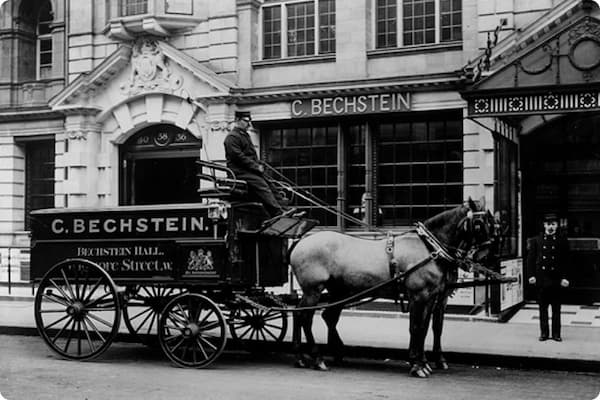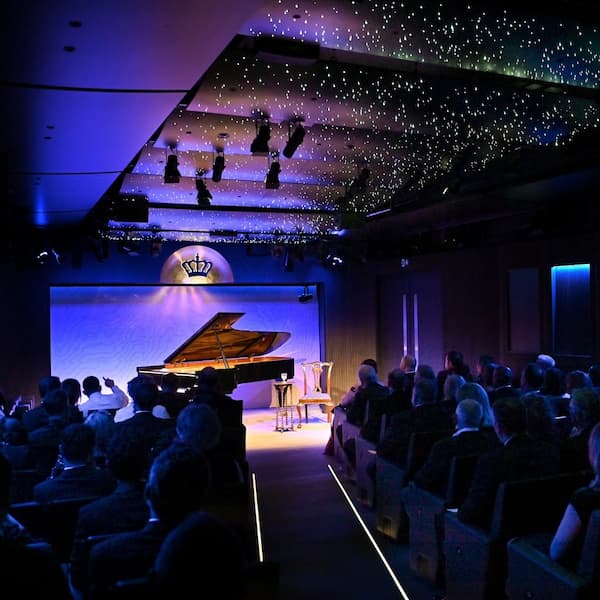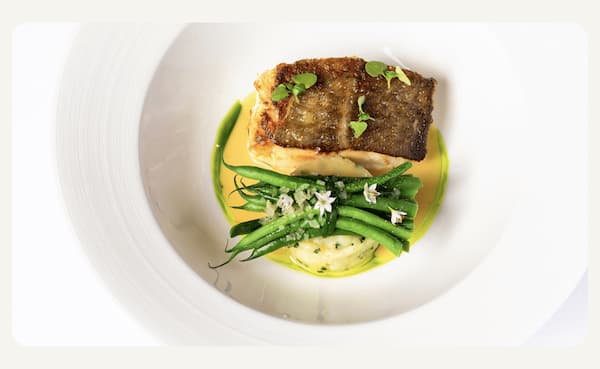In November 2024, Bechstein Hall opened its doors and welcomed music lovers to a brand new recital space, piano showroom and fine dining restaurant.

The New Bechstein Hall
Bechstein Hall, a name steeped in the rich history of classical music in London, has returned to the heart of the capital’s musical scene. This new opening marks a significant revival for C. Bechstein, the renowned German piano manufacturer (established in 1853), whose concert instruments are now seen regularly on concert platforms and in recording studios, challenging Steinway as the pre-eminent maker of concert pianos.
The original Bechstein Hall was located at 36 Wigmore Street and opened in 1901. The fine marble-lined and gilded concert hall was intended to showcase C. Bechstein pianos, which were sold from the showroom next door. Renamed Wigmore Hall during World War I due to anti-German sentiment, it was, and remains, a beacon for serious music lovers, known for its impeccable acoustics, intimate atmosphere and world-class performers and programmes, in particular of chamber music and song.

The original Bechstein Hall
The new Bechstein Hall is not just a concert venue but part of a significant redevelopment project that includes a two-storey flagship showroom, rehearsal rooms, a selection room for concert hire pianos, and an elegant restaurant. With a capacity of just 100 seats, the recital space is designed to be both grand and intimate, echoing the ambiance of its historic predecessor while introducing modern acoustic technology and lighting.
But it is the actual concert concept which perhaps makes Bechstein Hall more innovative than its neighbour. For many concert-goers, the dilemma of an evening concert, which begins at 7.30pm and ends around 9 or 9.30pm, is fitting in time to eat. For me, a regular concert reviewer at Wigmore Hall when I lived in London, dashing up to central London after work meant there was no time to eat before the concert started at 7.30pm: a quick drink in the bar beforehand and then a sandwich eaten on the train on the way home around 10pm was hardly nourishing! Bechstein Hall resolves this by offering hour-long weekday concerts, with the exact same programme at 6.30pm and 8.30pm. This gives concert-goers time to eat before or after the music, and also does away with the traditional concert interval, which can interrupt the flow of the performance, for both audience and performer.

Bechstein Hall’s recital space
The British pianist Sir Stephen Hough has advocated for shorter concerts, challenging the traditional evening concert format: “At some point in the early 20th Century we settled into a pattern: Concerts should start early evening and last roughly two hours with a liquid interval, either to drink a glass of wine or visit the ladies gents.” (Stephen Hough). His view is that shorter concerts could attract younger or different audiences, but from a practical point of view, an early evening concert at 6.30pm means that one need not face the prospect of the late train home. An early evening concert may also attract the “rush hour” music lover – and what could be more delightful than an hour of music to unwind from a day’s work before facing the homeward commute?
Franz Liszt: 12 Études d’exécution transcendante, S139/R2b – No. 11 in D-Flat Major, “Harmonies du soir” (Stephen Hough, piano)

In addition to reimagining the concert experience, Bechstein Hall aims to become a nurturing ground for young and emerging talent. The current season includes performances by pianists Vadym Kholodenko, Gold Medallist at the Van Cliburn Competition, Piers Lane, Sasha Grynyuk, Grace Francis, and Ilya Maximov, guitarist Jack Hancher and baritone Thomas Humphreys.
Andrei Schulz-Evler: Concert Arabesques on Themes of J. Strauss II’s Waltz On the Beautiful Blue Danube (Piers Lane, piano)
Anecdotally, I hear that both Steinway Hall (around the corner on Marylebone Lane) and Wigmore Hall are none too happy about the new kid on the block, but from the point of view of the music lover and piano enthusiast, the opening of Bechstein Hall represents more choice. Besides, Wigmore Hall has a well-established reputation and a loyal audience, and the addition of another concert venue could be regarded as an opportunity for greater cultural enrichment, and an enhancement to London’s arts landscape.
For more of the best in classical music, sign up for our E-Newsletter



